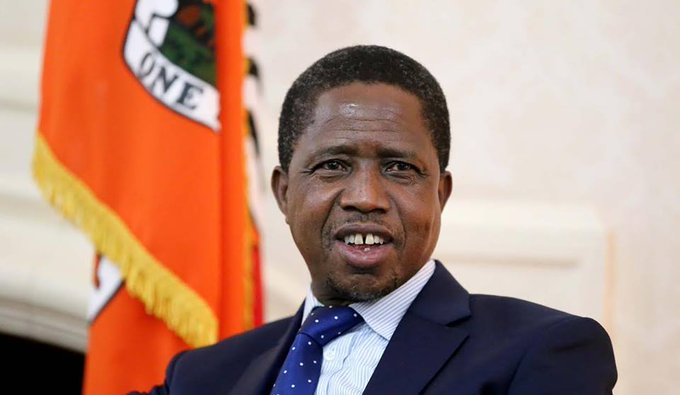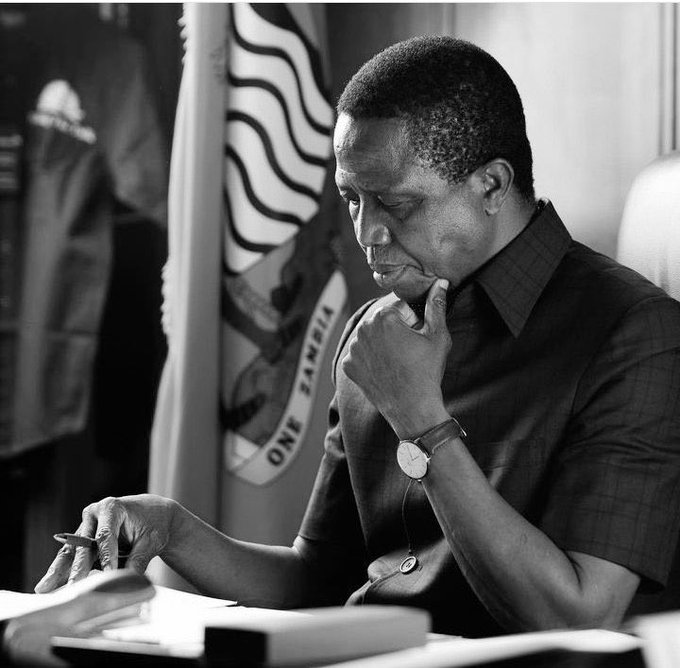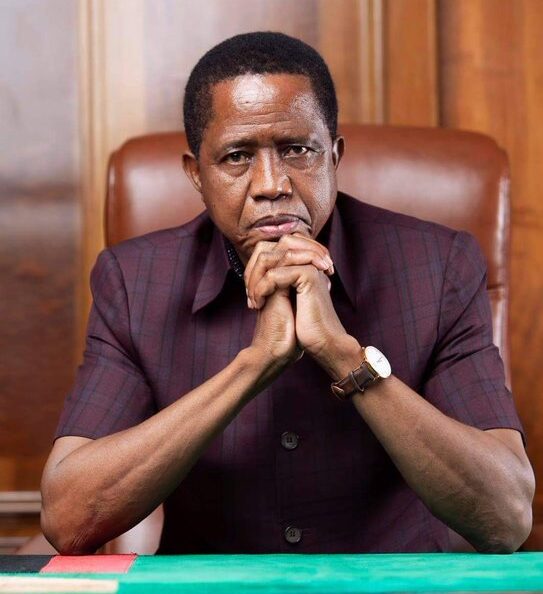Edgar Chagwa Lungu, Zambia’s sixth president, passed away on June 5, 2025, at the age of 68 while receiving specialized medical treatment in Pretoria, South Africa. His death marks the end of a significant and often contentious chapter in Zambia’s political history, characterized by assertive leadership, economic ambitions, and political turbulence.

Lungu’s passing was officially announced by his political party, the Patriotic Front, and confirmed by his daughter Tasila Lungu-Mwansa, a sitting member of parliament. In a somber video message, Tasila revealed that her father had been under medical supervision for several weeks and died peacefully in hospital. The family maintained privacy regarding the exact cause of death, though reports indicate he succumbed to cardiac complications following surgery.
Rise to Power and Presidency
Edgar Lungu’s political career gained prominence under the presidency of Michael Sata, during which he served as Minister of Justice and Minister of Defence. Following Sata’s death in October 2014, Lungu was selected as the Patriotic Front’s candidate for the January 2015 presidential by-election. He narrowly defeated opposition leader Hakainde Hichilema to complete Sata’s term and was subsequently elected to a full term in 2016 after another tight race against Hichilema.
His presidency, spanning from January 2015 to August 2021, was marked by ambitious development goals and efforts to diversify Zambia’s economy beyond its traditional reliance on copper mining. Lungu championed infrastructure projects and sought to enhance human security within the country. He also made history by appointing Inonge Wina as Zambia’s first female vice-president and initiated social programs such as commuting sentences and promoting a national day of prayer.
Controversies and Challenges
Despite these achievements, Lungu’s administration faced significant criticism. His government was accused of democratic backsliding, with allegations of authoritarian tactics, suppression of dissent, and heavy-handed security measures. These policies generated backlash domestically and raised concerns among international observers about Zambia’s political direction during his tenure.
Following his defeat in the 2021 presidential election by Hakainde Hichilema, Lungu initially retired from politics. However, he attempted a political comeback in 2023, positioning himself as the leader of a new opposition alliance aimed at contesting the 2026 general elections. This effort was curtailed when Zambia’s Constitutional Court ruled in December 2024 that his initial partial term counted as a full term, rendering him ineligible to run again under the two-term limit. Lungu publicly accused the judiciary of political bias, and his final months were marked by limited public appearances and reports of surveillance and restrictions on his movements.
Personal Life and Legacy
Born on November 11, 1956, Edgar Lungu was a trained lawyer and a practicing Baptist. He married Esther Lungu in 1986, and they had six children, including Tasila Lungu-Mwansa. Throughout his life, Lungu emphasized national unity and patriotism, famously stating, “We are all ambassadors of our country, our own. Regardless of whether you are part of the ruling party or the opposition, there is only one nation you can proudly claim as your own”.
Lungu’s legacy is complex. He is remembered for elevating Zambia’s profile on the international stage and fostering diplomatic ties with neighboring countries. Yet, his tenure also exposed deep political divisions and raised questions about governance and democratic freedoms in Zambia. His death leaves a void in Zambian politics and prompts reflection on the country’s future trajectory.

Conclusion
Edgar Lungu’s death at 68 closes a significant chapter in Zambia’s post-independence history. His leadership was marked by bold initiatives and economic ambitions but shadowed by political controversies and challenges to democratic norms. As Zambia mourns the loss of a former leader, the nation faces the task of reconciling his contributions with the contentious aspects of his rule, while looking ahead to its evolving democratic journey.

